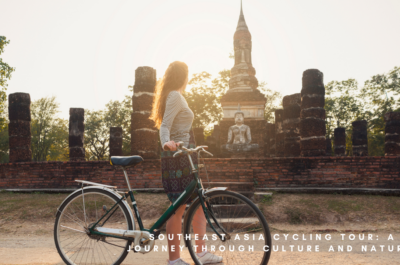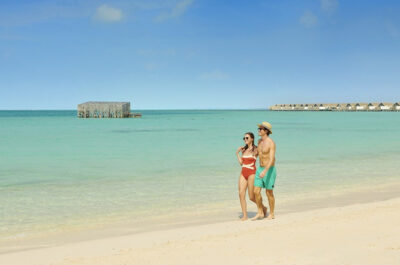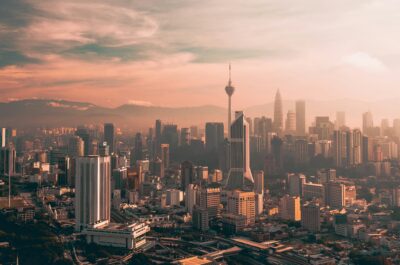That's when the idea of a Circular Tourism Standard was born (it was originally titled Recyclable Resource Recovery Standard because we did not know about the Circular Economy five years ago).
Why come up with a Circular Tourism Standard when there are quite a number of very good sustainable standards supported by the Global Sustainable Tourism Council? In addition on the 15 September 2017, the UN World Tourism Organisationrecently transformed the Code of Ethics for Tourism into an international convention, the first in the life of the Organization providing yet more guidelines to sustainability.
In 2013 I began working on a Recyclable Resource Recovery system re-design that had the potential to increase incomes, improve working conditions, and establish an efficient collection system by informal collectors thus offering convenience to households and businesses via a structured system. My work started in Thailand, a country with a huge tourism industry, and it became apparent that unless we engaged the tourism sector and all the periphery industries we would lose out not only on a huge segment of the market but to a sector that contributes a lot to global waste and a country’s GDP.

The question was how to engage the many micro, small and medium tourism operators into more sustainable practices without stretching their resources. Or better yet, how to encourage them to stretch their resources if it is good for business? A Circular Tourism Standard may be the only sustainable standard they can meet for the near future.
That’s when the idea of a Circular Tourism Standard was born (it was originally titled Recyclable Resource Recovery Standard because we did not know about the Circular Economy five years ago). Its successful development hinges on the following criteria:
- We must test and make workable the Recyclable Resource Recovery system re-design.
- We collaborate with an online booking site to test and tweak the system, to make it workable for the whole online booking industry.
- We form an alliance with a number of hotels (small, medium and large) to ensure it is actually implementable, practical and engages staff and guests. It needs to tell a story of sustainability, improvements for informal recycling collectors and the Circular model of ethical tourism and recyclable resource recovery.
- Finally it needs to be easy, simply and inexpensive for EVERYONE: guests, staff, managers and establishment owners.

Tourism is all about new and exciting experiences, however when we don’t manage the environment well, when waste lies everywhere and when we see locals throw their waste anywhere, our experience is diminished. In 2016 when I interviewed 80 hotels as to their recycling practices, one manager told me “…a proper recycling collection system would boost staff morale.” He explained that younger staff want to put into practice their environmental education yet the perceived higher economic costs by hotel owners seemingly makes this impossible.
By the end of 2016, the research was completed and it was time to start testing our Recyclable Resource Recovery system re-design, via three pilots:
Stage 1: Micro: included private residences, small businesses and boutique hotels, many of which are staffed by foreign workers from Nepal, Bangladesh, India, Pakistan and Myanmar etc. Completed between Nov 2016 ~ Mar 2017.
Stage 2: Medium: ready to roll out once we receive approval from the Malaysian government.
Stage 3: Large: technically should be expanded immediately after the completion of Stage 2.
The Stages relate specifically to the geographical size of the pilot test area. You can read about Stage 1: “The Circular Economy in Asia”.
As the results were very promising it gave us renewed incentive to keep going to further develop our work into the comprehensive plan we originally envisioned that includes most sectors of any society. It’s important to stress ‘most sectors’ because some industries, particularly health care, have their own special waste management issues and something we cannot cover at this stage.
Our Recyclable Resource Recovery system re-design is human centric whilst using the best technology has to offer. The Circular Economy makes a lot of economic promises of resource cost savings and increased profits but if we cannot deliver those promises to the bottom-of-the-pyramid we will have failed.
Here at Keep Asia Beautiful we don’t see why this has to fail. We believe in the potency of our imagination, the power of ideas and the strength of human endeavour as we face critical climate change challenges for some generations to come.
We are excited by our work and look forward to sharing all our successes and failures as we work across the Asian region as these countries shift into a new future of sustainability.
 Ms Adrienna Zsakay, Executive-Director, Keep Asia Beautiful and our branch office of Keep Malaysia Beautiful. Click here for a copy of the Circular Tourism Standard presentation.
Ms Adrienna Zsakay, Executive-Director, Keep Asia Beautiful and our branch office of Keep Malaysia Beautiful. Click here for a copy of the Circular Tourism Standard presentation.
TravelDailyNews Asia-Pacific editorial team has an experience of over 35 years in B2B travel journalism as well as in tourism & hospitality marketing and communications.




![[PR] PR_Ascott and Vimut Hospital_2024](https://www.traveldailynews.asia/wp-content/uploads/2024/04/PR-PR_Ascott-and-Vimut-Hospital_2024-400x265.jpg)


































































